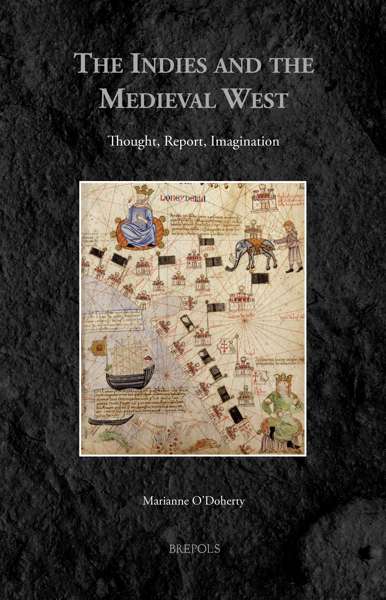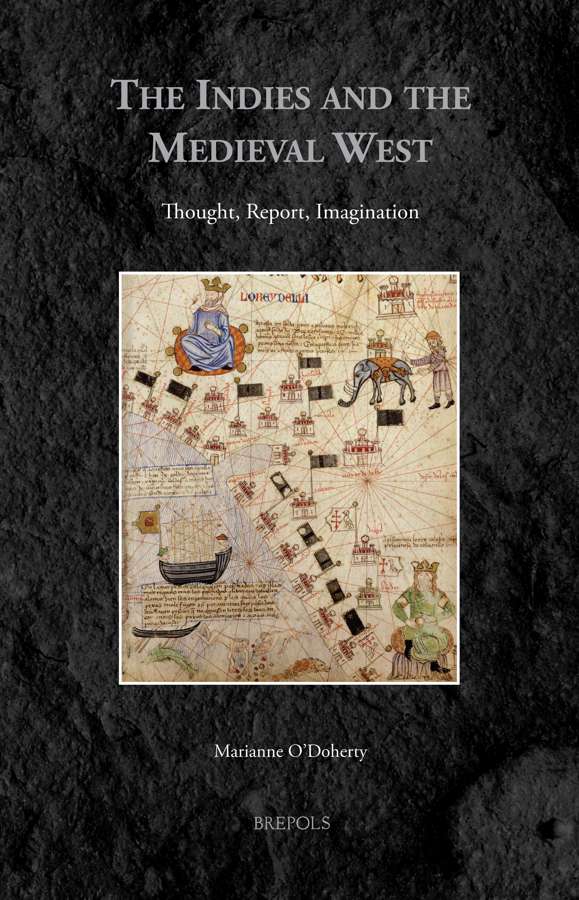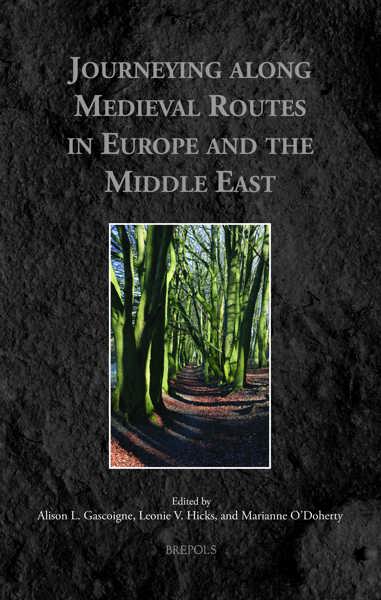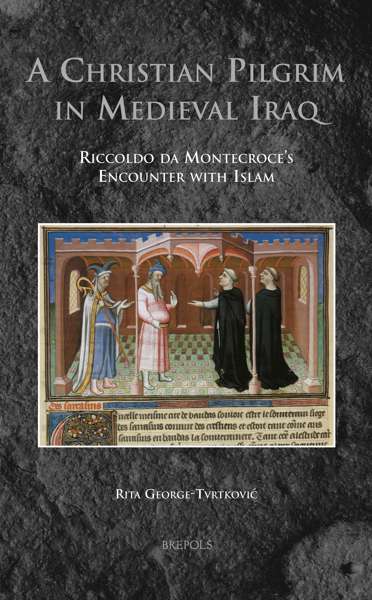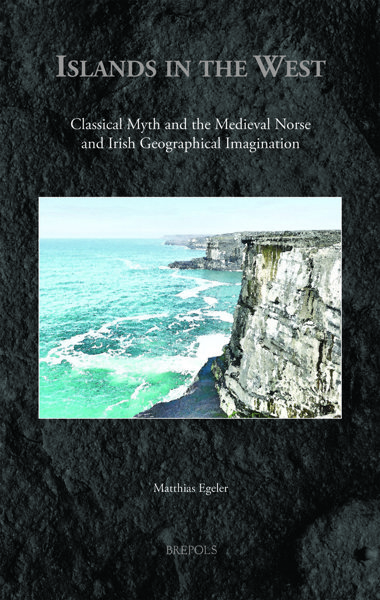
- Pages: 377 p.
- Size:156 x 234 mm
- Illustrations:36 b/w, 3 col.
- Language(s):English
- Publication Year:2013
- € 110,00 EXCL. VAT RETAIL PRICE
- ISBN: 978-2-503-53276-9
- Hardback
- Available
- € 110,00 EXCL. VAT RETAIL PRICE
- ISBN: 978-2-503-55854-7
- E-book
- Available
This volume offers a wide-ranging and interdisciplinary treatment of European representations of the Indies between the twelfth and the fifteenth centuries.
"In The Indies and the Medieval West, Marianne O' Doherty helps us to reimagine "the Indies" from a medieval point of view. Her extensive research provides us with indepth analysis of the different editions and translations of highly influential "travel literature" texts. O' Doherty also analyses medieval cartography with a fascinating attention to detail. Her forte lies in the minute codicological study of her material, with scrupulous and illuminating attention paid to the crucial role of the paratext in the shaping and ordering of meaning. She carefully avoids the pitfall of a teleological, progress-centred narrative of the history of representation, focusing instead on the specific mental worlds created by medieval maps in the context that was properly their own. The intricate European networks of circulation of maps, books, and manuscripts, in which England has a significant part, is brilliantly reconstructed. Her commendable research shows that it is possible to combine medieval studies and cultural studies with great success and to provide good background material for contemporary approaches such as native/postcolonial studies, cultural geography and even space theories and historiography." (The jury report of the The European Society for the Study of English - Book Award 2014 (Cultural Studies in English - Junior scholars))
"(...) c'est là un ouvrage de très grande valeur qui renouvelle profondément le thème. Fondé sur des lectures abondantes et guidé par une méthode maîtrisée, il abonde en analyses d'une grande finesse et en vues pertinentes qui donnent aux espaces indiens une personnalité complexe dégagée des anachronismes et des idées générales. Il démontre en particulier que »la spatialité« médiévale - si elle existe - ne saurait se résumer en une formule." (Patrick Gautier Dalché, dans: Francia-Recensio, 2014/4, online: http://www.perspectivia.net/content/publikationen/francia/francia-recensio/2014-4/MA/o-doherty_dalche)
"(...) scholars will be grateful for the range of her erudite, synthetic study and its careful attention to situated detail, especially of individual manuscripts and maps." (Iain Macleod Higgins, in: American Historical Review, 120.1, 2015, p. 201-202)
"Le livre de Marianne O’Doherty apporte, on l’aura compris, une contribution remarquable à l’histoire de la géographie et à l’histoire des idées." (M. Mund-Dopchie, dans: Bulletin codicologique - Scriptorium, 2014/01)
"Gelungen ist eine ausgesprochen vielfältige und zugleich gut durchstrukturierte und damit das Wirrwarr Indien für den modernen Leser begreifbar machende Darstellung." (Felicitas Schmieder, in: sehepunkte 16, 2016, Nr. 3 [15.03.2016], URL: http://www.sehepunkte.de/2016/03/24603.html)
Winner of The European Society for the Study of English - Book Award 2014 (Cultural Studies in English - Junior scholars)
This volume offers a wide-ranging and interdisciplinary treatment of European representations of the Indies between the twelfth and the fifteenth centuries. Drawing on encyclopaedias, cosmographies and cartography, romance, hagiography, and legend, it traces the influence of classical, late antique, and early medieval ideas on the later medieval geographical imagination, including the imagined and experienced Indies of European travellers. Addressing the evidence of Latin and vernacular manuscripts, the book explores readers’ encounters with the most widely read travellers’ accounts, in particular, those of Marco Polo, Odorico da Pordenone, and Niccolò Conti. Chapters on The Book of Sir John Mandeville, medieval Europe’s most idiosyncratic yet popular work of geography, alongside world maps produced across Europe, point to the ways in which representations of the Indies were inflected by temporal concerns, specifically, their relationship to Latin Christendom’s past, present, and future. The Indies relates the texts, documents, maps, and manuscripts it discusses closely to the changing ideological concerns of their times, notably those of mission and conversion, crusade, conquest, and economics. Nonetheless, the relationships that the work delineates between spatial representations and notions of dominance, whether religious, political, economic, or epistemic, have implications for the post-medieval world.
Introduction
Part i. Vere unus alter mundus: Traditions and Travellers
Chapter 1. Classical Traditions of India and Medieval Transformations
Chapter 2. Other Coordinates: The Indies of Late Medieval European Travellers
Part ii. Embodied Encounters: Travellers’ Texts and their Readers
Chapter 3. Changing Places: The Unstable Indies of Vernacular Readers
Chapter 4. A Moral and Geographical Education: Latin Accounts of the Indies and their Readers
Part iii. Geographical and Cartographic Reorientations
Chapter 5. Debating Diversity in an Interconnected World: The Indies in the Book of Sir John Mandeville
Chapter 6. Placing the Indies in Space and Time: Cartographic Representations, c. 1200–c. 1450
Conclusion: Multiple Medieval Indies, Globalization, and Rebellion
Appendices: Manuscripts of Travel Accounts Discussed in Part ii
Bibliography
Index of Manuscripts
General Index
